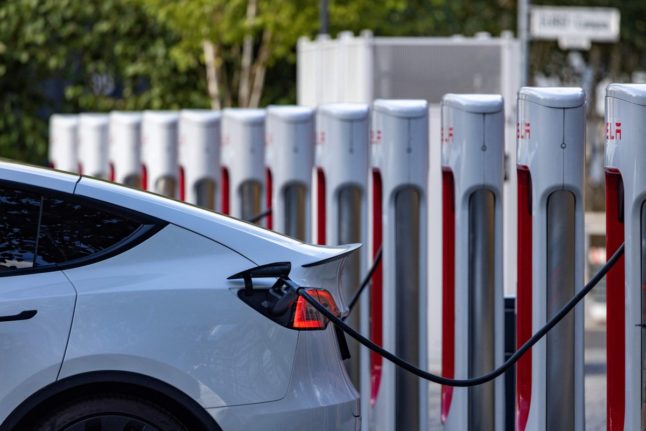The suspension was disclosed just hours before the United States and Britain announced early Friday they had carried out air strikes against the Iran-backed rebels over their repeated threats to vessels in the key waterway.
The Red Sea attacks had led to delays that created a “gap in the supply chains”, resulting in production at the facility southeast of Berlin being suspended “with the exception of a few sectors”, Tesla said in a statement sent to AFP.
“From February 12, production will resume in full,” it added.
Meanwhile, Volvo said Friday that its factory in the Belgian city of Gand would close for three days next week due to a lack of transmissions due to deliveries being delayed by a change in shipping routes.
The factory produces the XC40 SUV as well as the electric C40 model.
Since the start of the Israel-Hamas war, the Iran-backed Huthis have stepped up attacks on commercial and military vessels in the Red Sea in what they say is solidarity with Palestinians in Gaza.
READ ALSO: Germany rejects UN ‘genocide’ charge against Israel
As a result, some shipping firms have opted to avoid the waterway, the gateway to the Suez Canal, forcing them to take much longer routes between Europe and Asia.
Early Friday morning, heavy US and British air strikes targeted an airbase, airports and a military camp in rebel-held Yemen, the Huthi’s Al-Masirah TV station said, with AFP correspondents and witnesses also reporting hearing bombardments.
US President Joe Biden called the strikes a “defensive action” after the Red Sea attacks and said he “will not hesitate” to order further military action if needed.
The Tesla factory outside Berlin opened in 2022 and employs around 11,500 people, turning out about 250,000 vehicles a year, according to the company, which plans to expand the facility to double production.




 Please whitelist us to continue reading.
Please whitelist us to continue reading.
Member comments